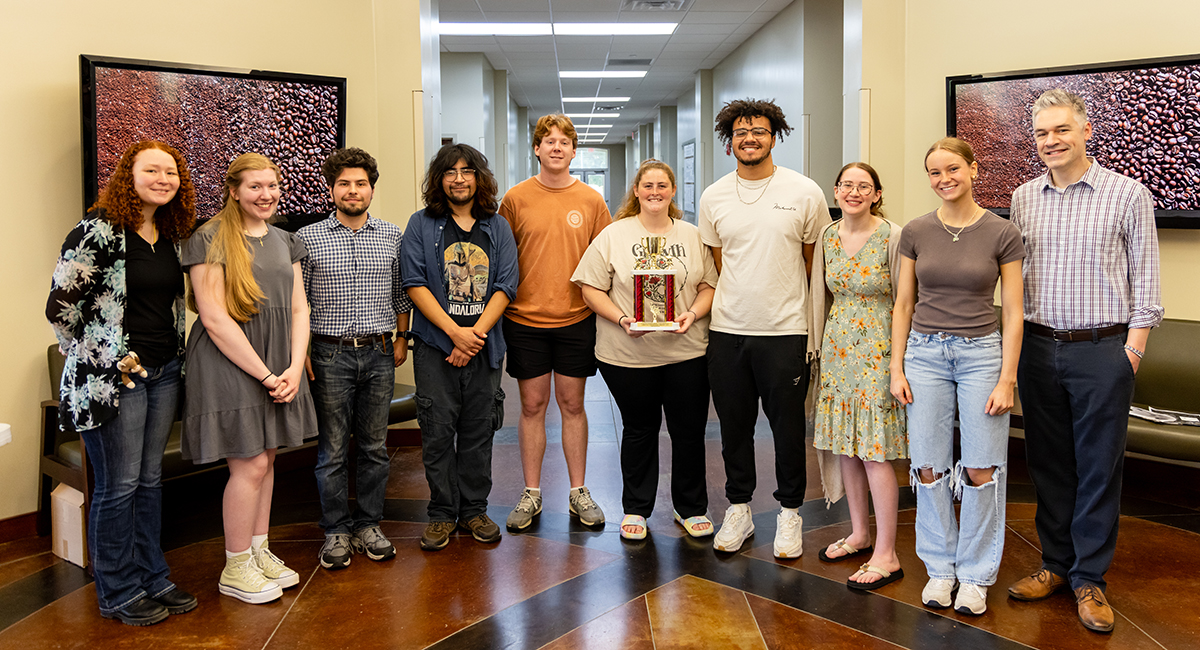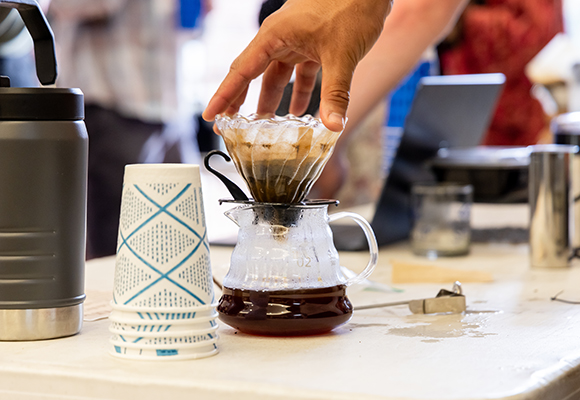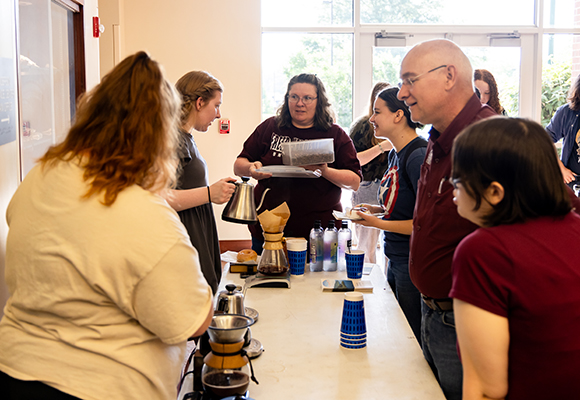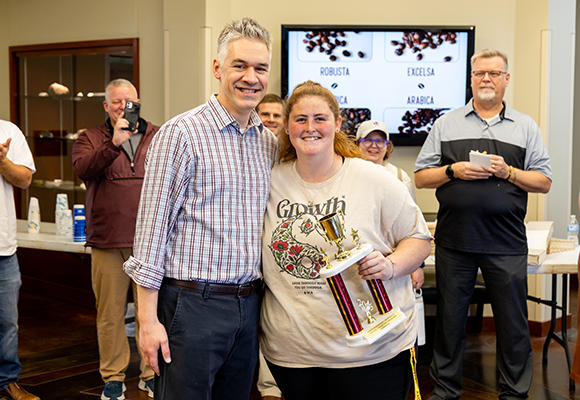
May 2025
The Great Brew-Off: FHU Students Compete in Coffee Tasting Competition
For the third time, students from Freed-Hardeman University’s coffee (and tea) chemistry class faced one another in a friendly “Brew-Off” during the final class meeting of the spring semester. Led by Dr. Jim Barr, assistant professor of chemistry, the unique elective class taught students all about the origin, cultivation, diversity, processing and global culture of coffee and tea. The class culminated in a taste-testing competition, open to the campus to attend and taste themselves, where each student submitted an original batch of freshly brewed coffee for a panel of sequestered judges.
“I love coffee,” Barr gleefully said. “I had seen that other universities do nerdy science classes for non-science majors, and so I thought—What if I could do a class on coffee? So after some discussion with the other science professors, I got a class going.”

Dr. Jim Barr and his coffee chemistry class host their third annual Brew-Off.
The class began in 2021, and many course details have evolved since then. “I did not know how little I knew about coffee until I started teaching this class,” Barr added. “My first year was filled with trial and error, but I created a method that allowed for hands-on learning for coffee creation.”
Barr hopes to teach students that there is so much more to coffee than it being bean-water serving as liquid transport for sugar and cream. He believes that the modern use of additives leads to a distorted version of the drink which covers up the underlying flavors. The class teaches that these unique origins should be celebrated and appreciated.
Throughout the semester, students were given the opportunity to learn about the origins and creation of coffee, even detailing where and how the beans are grown and processed, before ultimately creating their own roast for an end-of-semester competition. These self-described baristas-in-training learned to handle the roasting, grinding and brewing of their own unique coffee beans.
Each student was given 10 pounds of a variety of coffee beans from countries of their choice— including selections from Ethiopia, Honduras, China, Colombia, Indonesia, Yemen, Panama, Guatemala, Costa Rica and Peru. Each coffee gives a unique blend of flavors, ranging from a fruity, earthy flavor to a bitter, chocolate taste. Their taste is also affected by how the coffee is roasted, how long it is allowed to rest, how it is ground, and even what water is used for brewing.

A panel of judges rates each student's original blend of coffee.
“It’s been really fun,” said Ella Williams, a senior who has thoroughly enjoyed the process. “I love the freedom [Dr. Barr] gives. He gives us the resources, shows us how to do it, and we make coffee.” For her original blend, she chose coffee beans from China, creating a light roast to be served at the competition. Williams experimented for two months to invent a coffee she described as having a flavor of Elderberry, mixing in a pure-water blend to brew her drink.
This year, the winning brew belonged to Alice Billingsley, an Arts and Humanities major, who selected a bean from Antigua Guatemala. This was provided by Sweet Maria’s (“Guatemala Antigua La Folie 2”) and is noted to be a great wet processed coffee, showcasing a balanced sweetness, clean and bright flavors, with hints of Rooibos tea, caramel, having a refined finish. Alice worked to develop the flavor profile she liked and even used friends to sample her coffee and provide feedback to try and optimize her roast and method.

The 2025 Brew-Off winner is Alice Billingsley.
Barr hopes to expand the class and provide hope to others, especially international communities, by partnering with different programs with missionary work. “This could have religious implications, not just commercial. Ideally, I would love to use coffee to help people while also spreading Christ.”
One way to accomplish this (Barr dreams) is for FHU to create its own student roasting company which could then connect with missionaries and coffee farms in order to sell their coffee and fund mission work. “Then we can come back and spread the gospel in those locations,” Barr continued. “We could tell them of Freed-Hardeman, grow bonds and treat them with kindness and love. It could then help us to draw all people to Christ.”